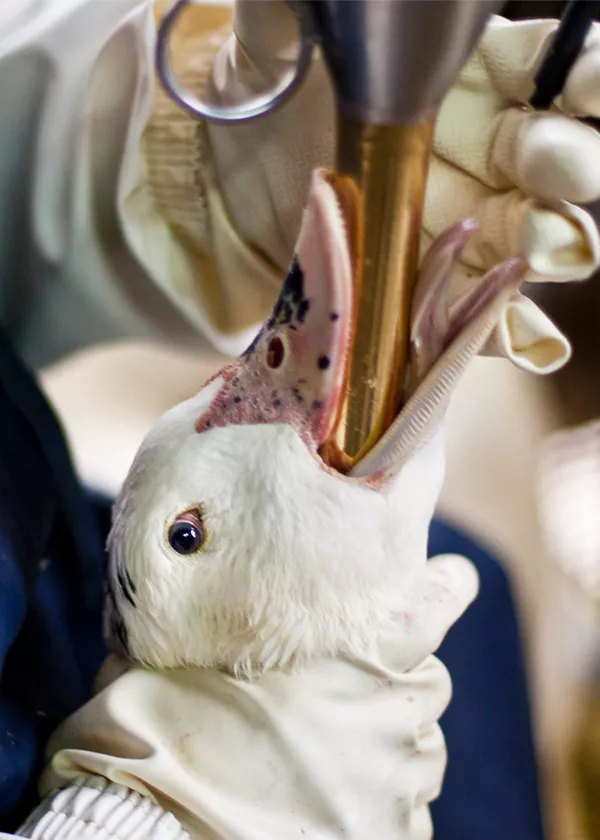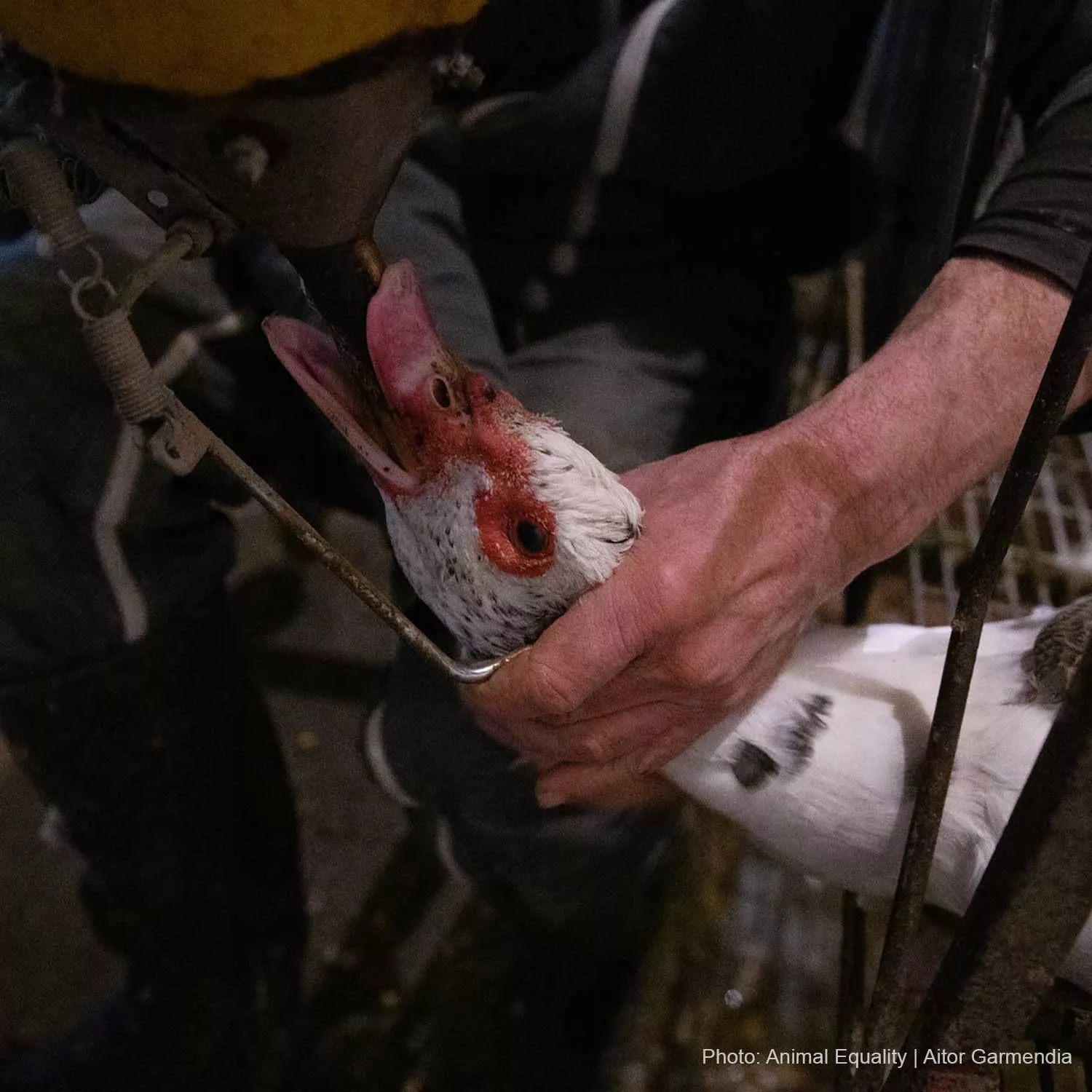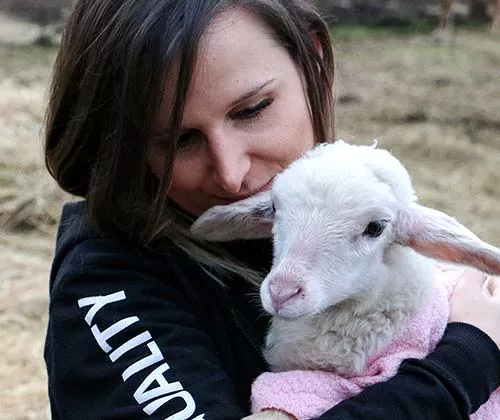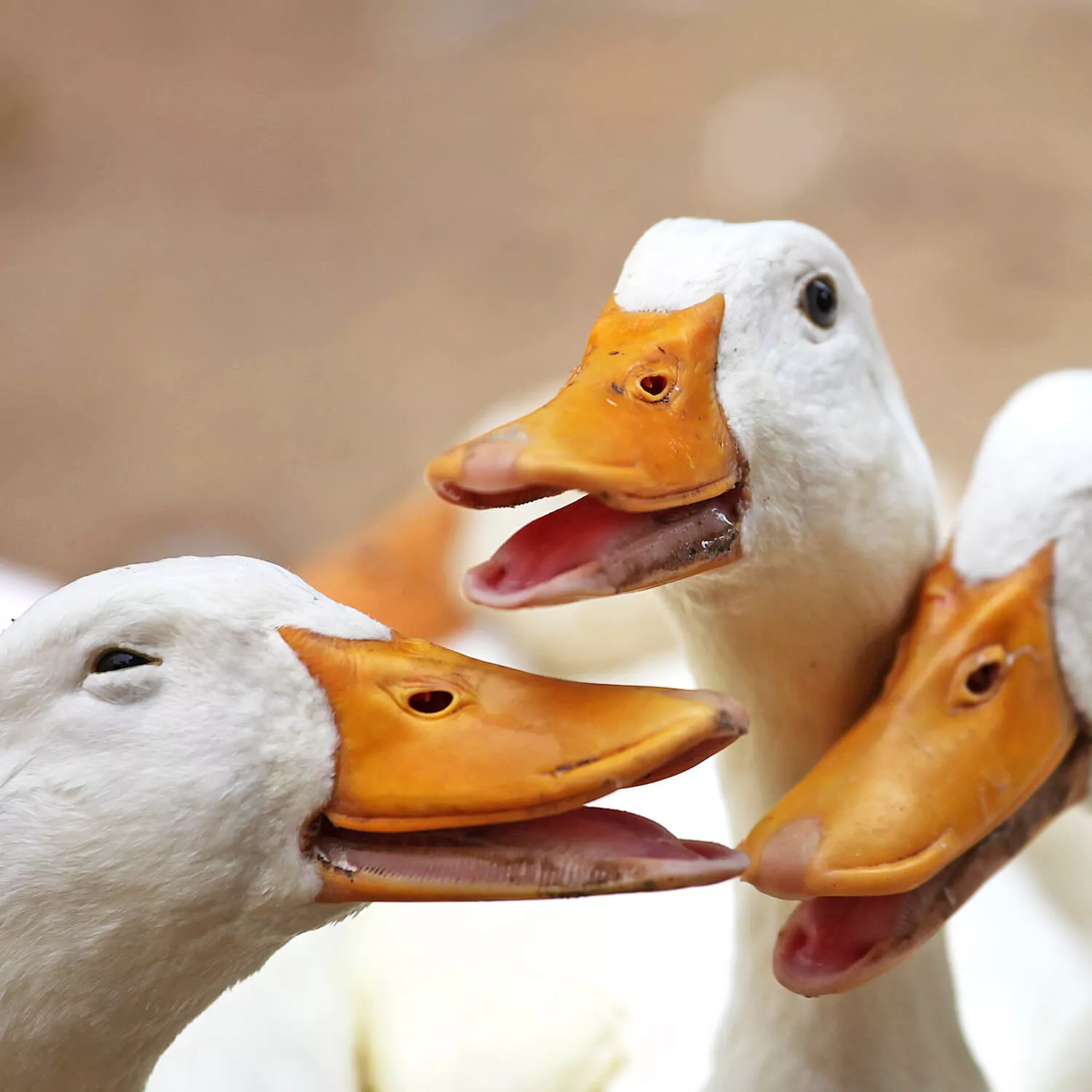BAn Foie Gras in the United States
For over a decade, Animal Equality has been on a global mission to end the force-feeding of ducks and geese for foie gras
Join us is demanding the stop to this unnecessary cruelty!
Foie gras, French for “fatty liver,” is produced by force-feeding ducks and geese until their livers swell up to ten times their normal size. This process involves inserting long metal tubes down the birds’ throats multiple times per day and pumping their stomachs with large amounts of food. After slaughter, their livers are processed into an expensive dish that has been banned in several countries.
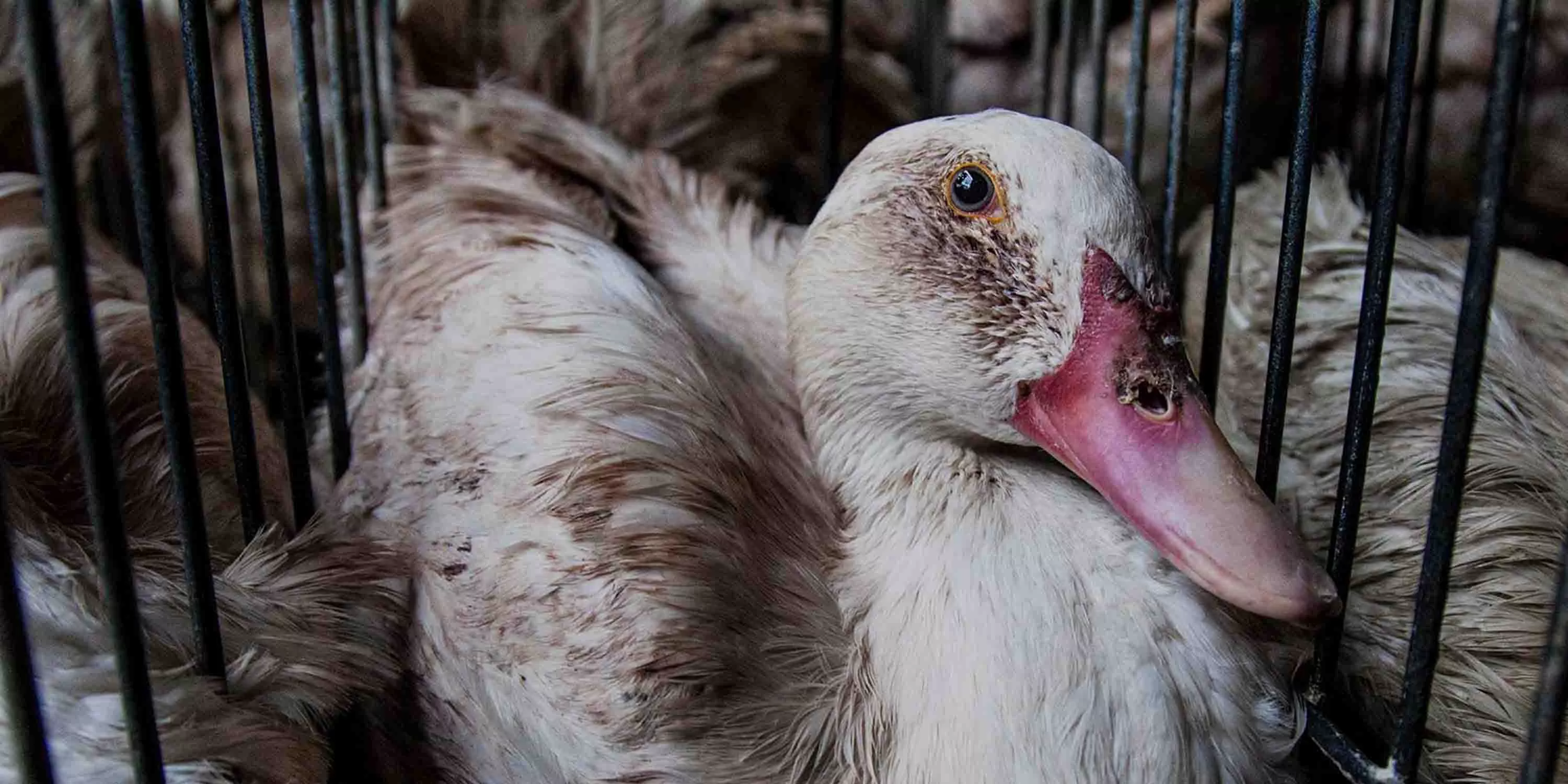
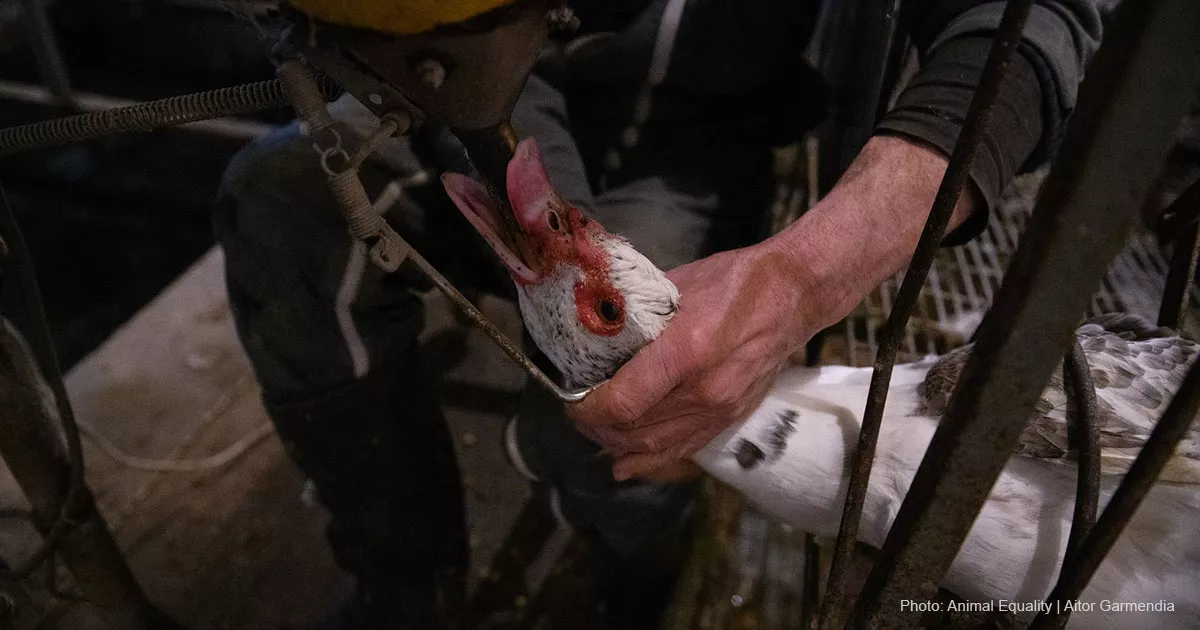
Cities and states across the U.S. should ban the sale of this entirely superfluous, luxury product within their borders.
Sharon Núñez
Founder and President, Animal Equality
Foie gras is cruel to animals
Force-feeding ducks
One of the most controversial practices in the animal agriculture industry is force-feeding ducks and geese to produce foie gras, a luxury food product available at some upscale restaurants and markets.
Foie gras is French for “fatty liver,” and that’s precisely what it is: a fatty spread made from diseased livers.
Diseased livers
Workers at foie gras farms thrust a 10- to 12-inch metal tube down each bird’s throat to rapidly deliver vast amounts of concentrated grain, fat, and compressed air into the bird’s stomach.
This process is repeated up to three times a day until the bird’s liver becomes diseased—often growing up to 10 times its standard size.
Extreme animal suffering
Force-fed ducks and geese have a mortality rate of up to 20 times higher than non-force-fed birds.
Force-feeding birds seriously harm the animals, including damaging their esophagus, making it difficult for them to breathe or stand. They suffer liver hemorrhages and even cardiac or renal failure.
Dangerous to public health
Because of the conditions in factory farms, ducks and geese have weakened immune systems. They become especially susceptible to avian influenza (bird flu) infections, which can spread to humans.
In 2021 alone, France registered 475 avian influenza outbreaks at bird farms, most of which were foie gras farms.
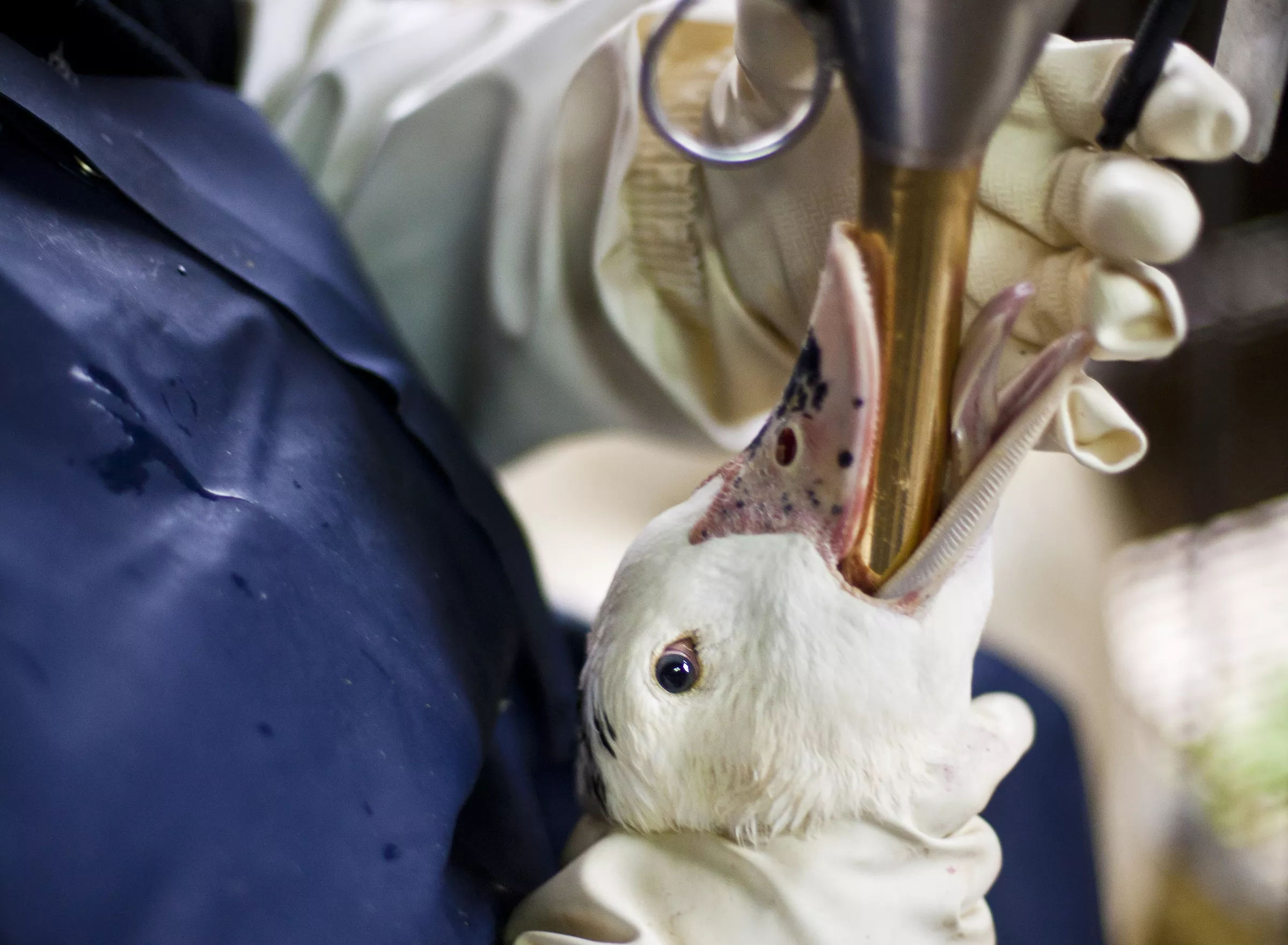
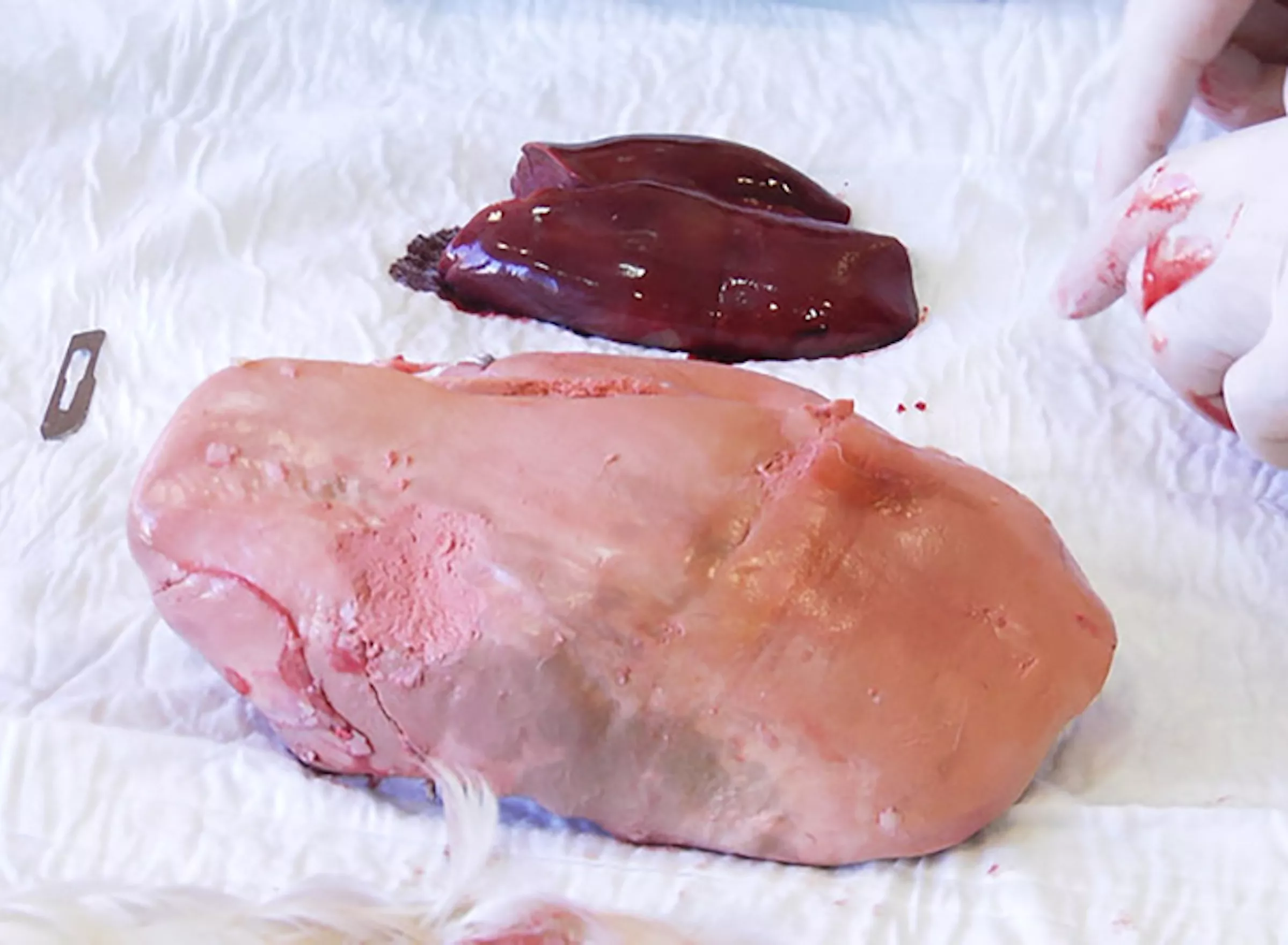
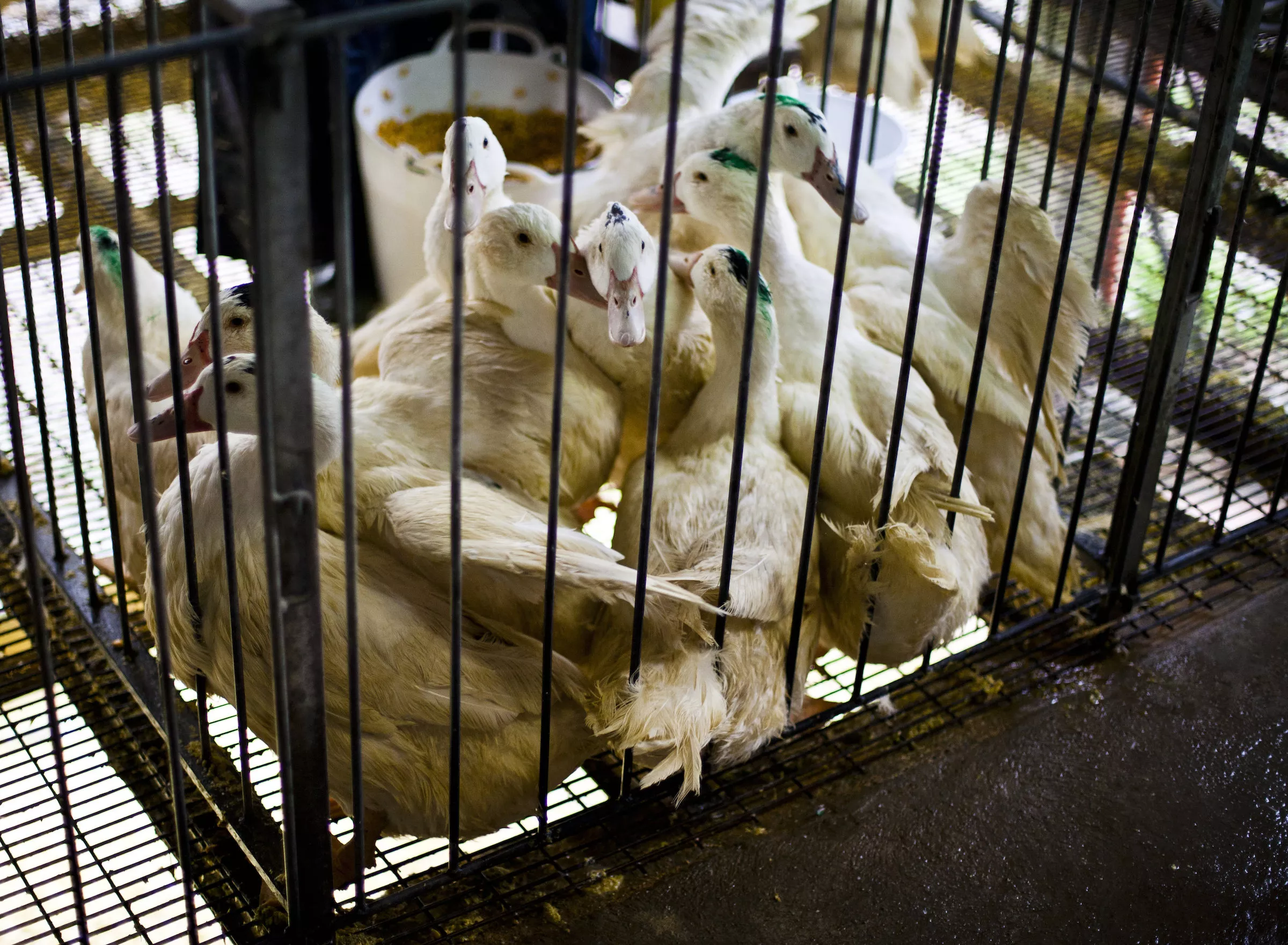
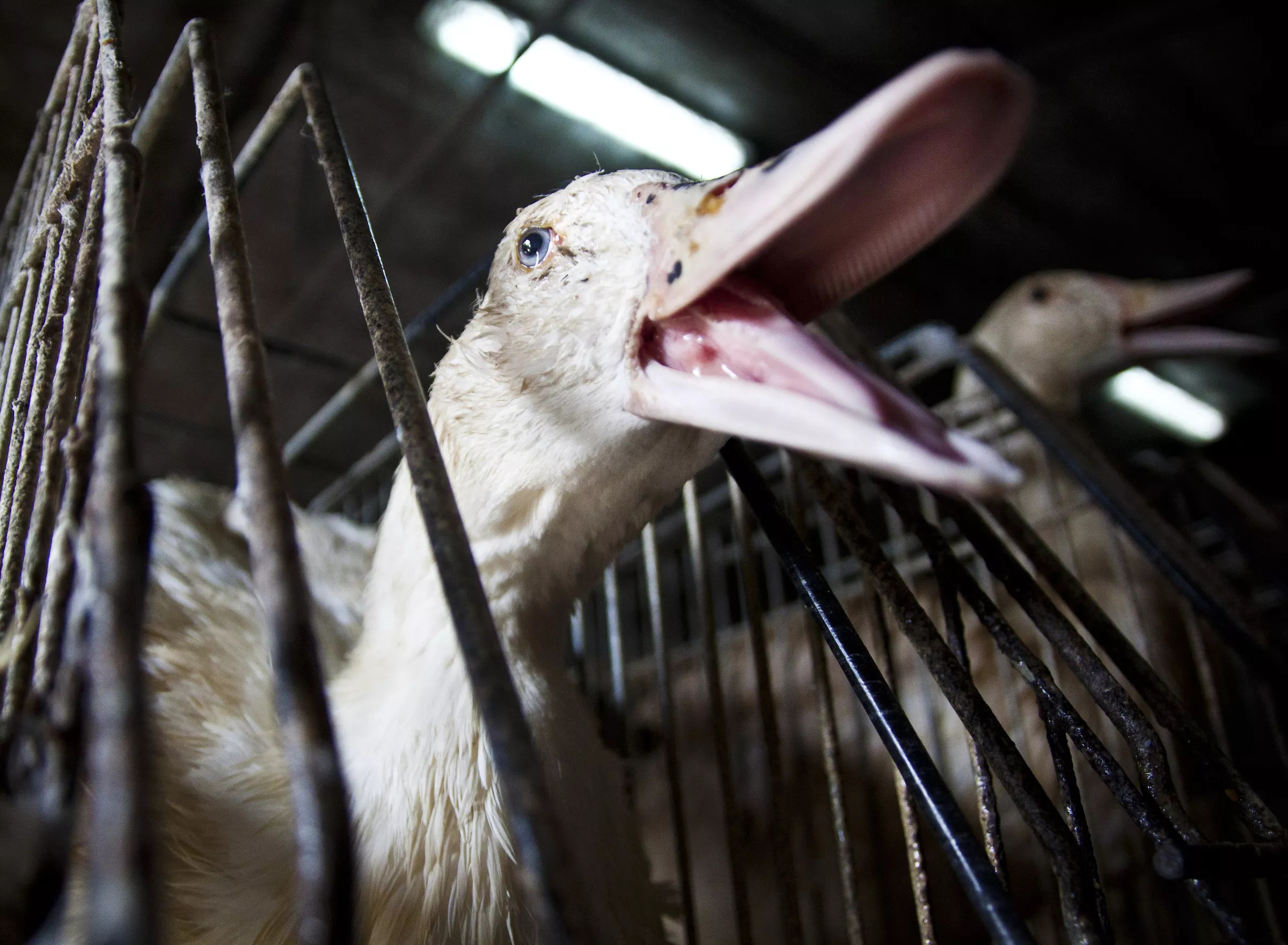
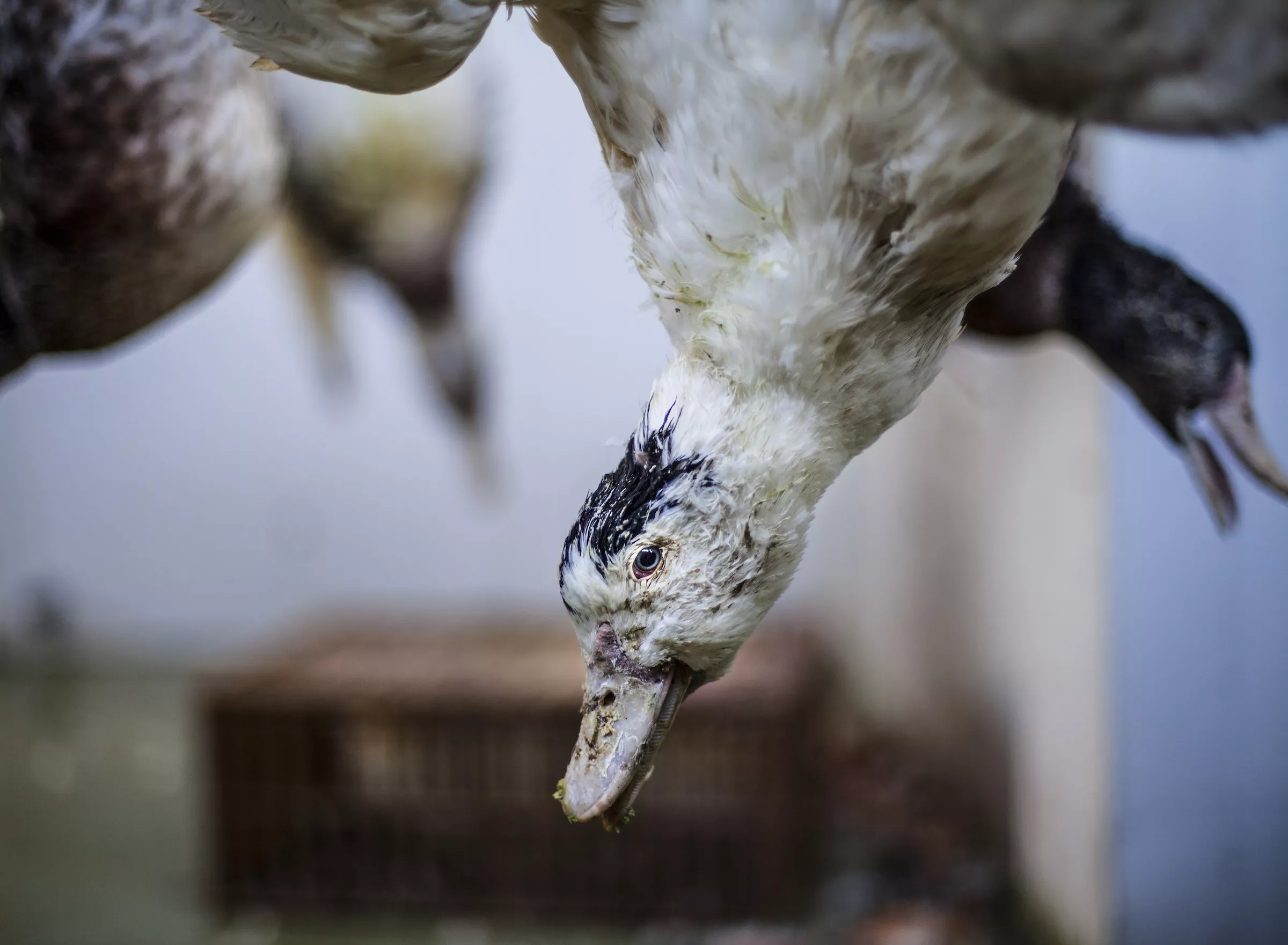
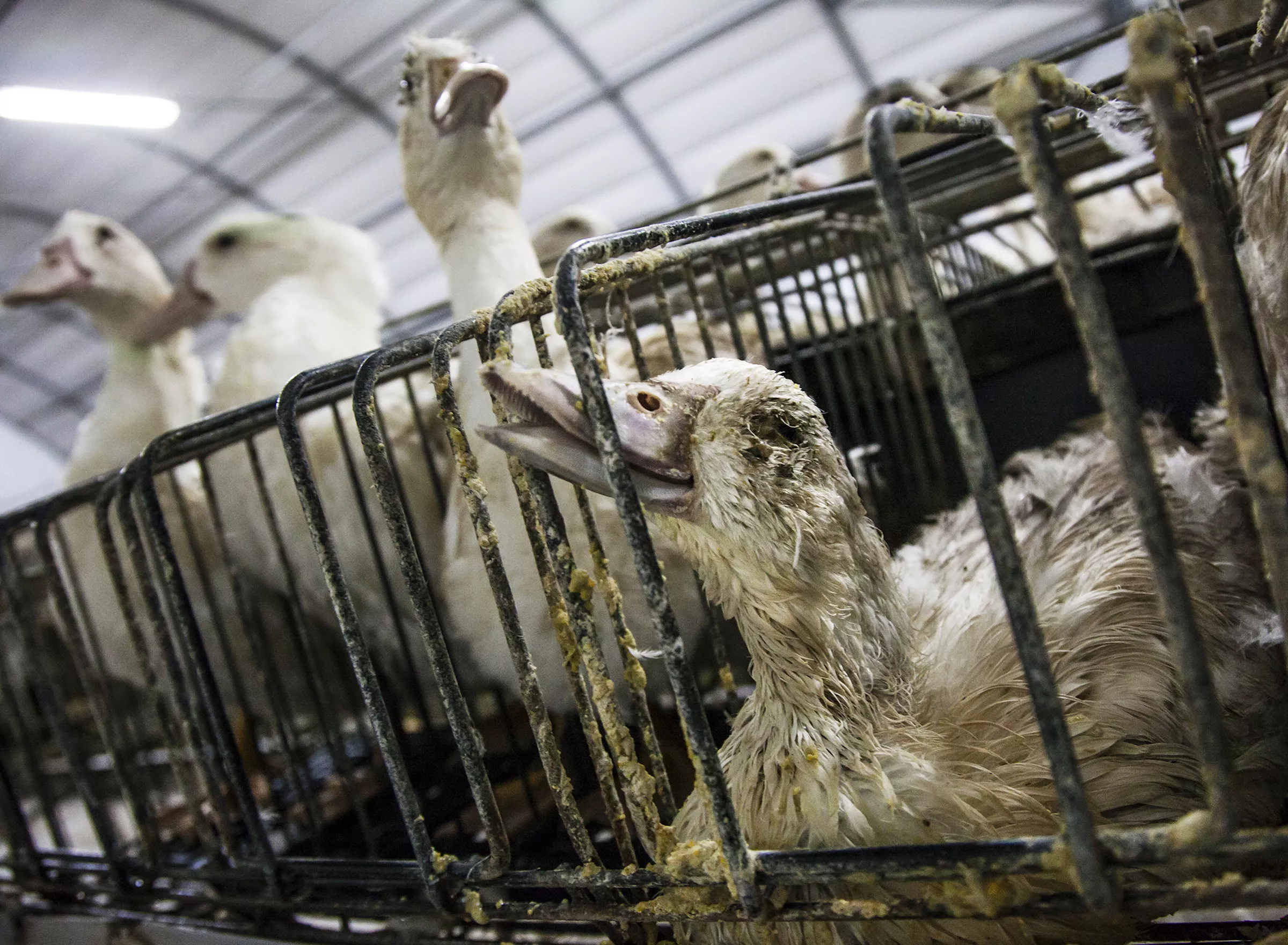
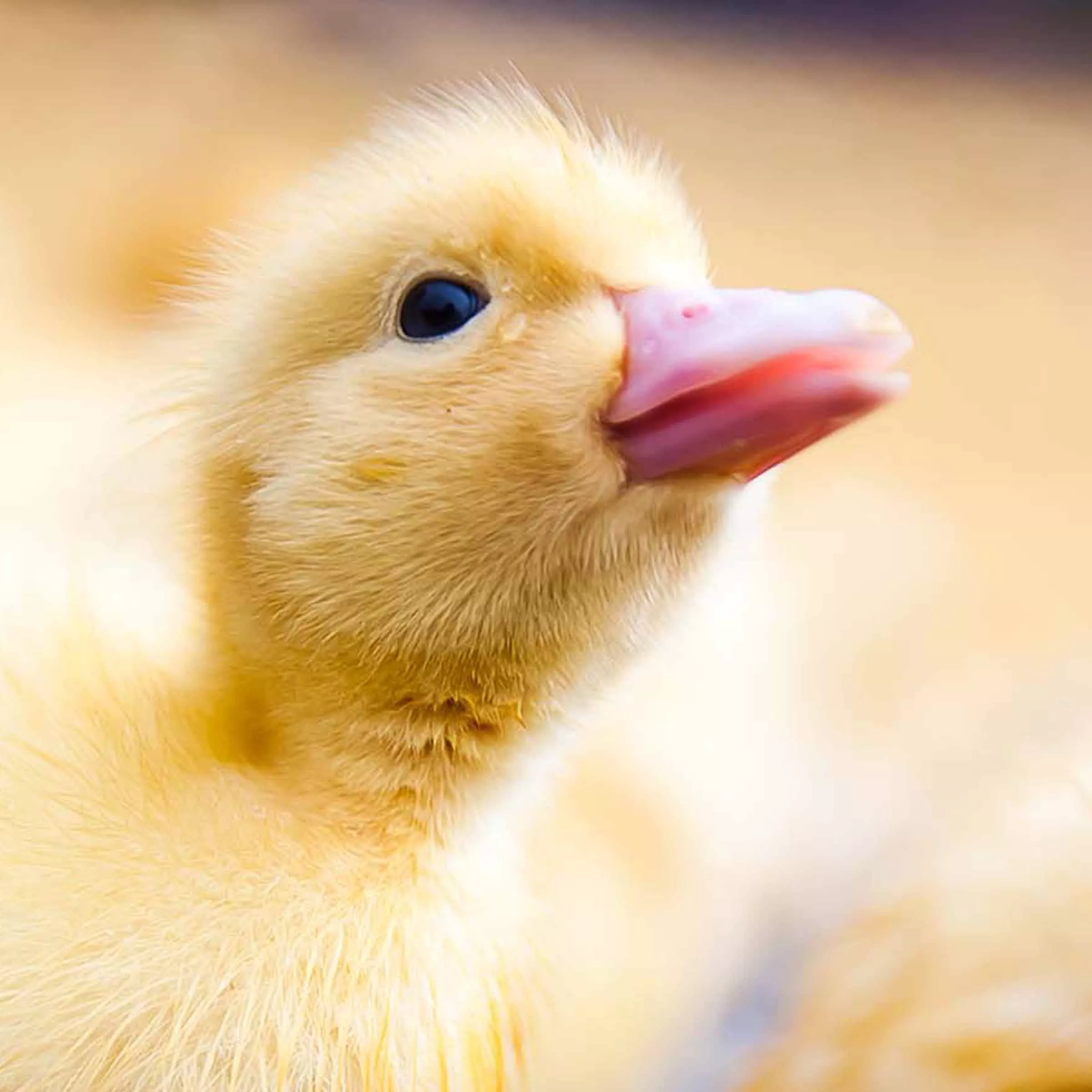
Worldwide progress against foie gras
In the United States, the city of New York and the state of California have banned the sale of foie gras. We continue to target major cities and work state by state as we fight for a nationwide ban.
Progress is possible as over a dozen countries have banned foie gras.
Here are some successes that our work has achieved so far:
- India became the first country in the world to implement a nationwide ban on importing foie gras. This was a direct result of our investigations in Europe.
- After our successful two-year campaign, one of Italy’s most significant stores, COOP, stopped selling foie gras.
- In the United Kingdom—where the production of foie gras is already banned—we are petitioning the government for a definitive ban on importation. We have obtained 250,000 signatures and the support of multiple politicians, celebrities, and journalists.

